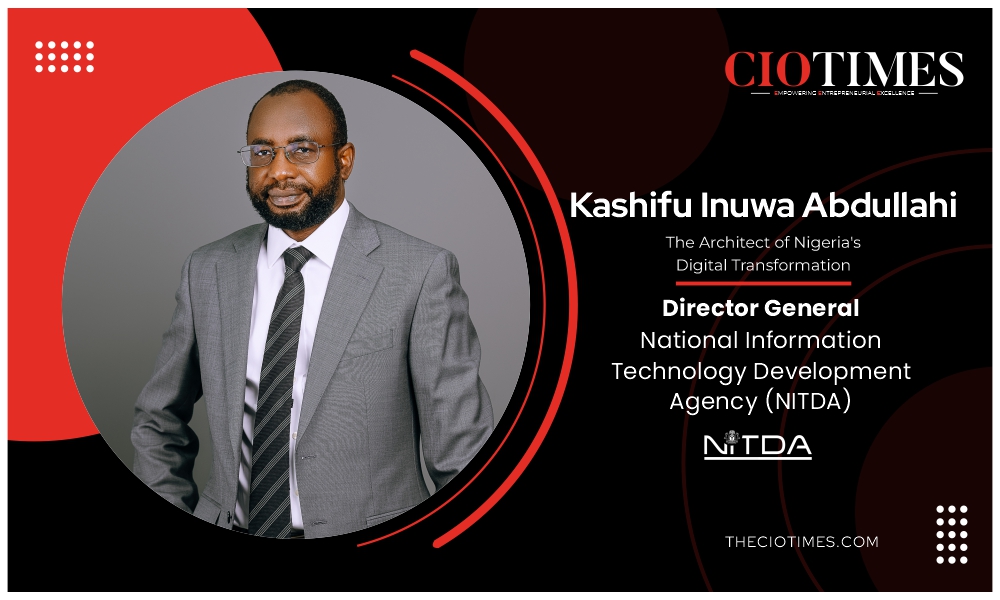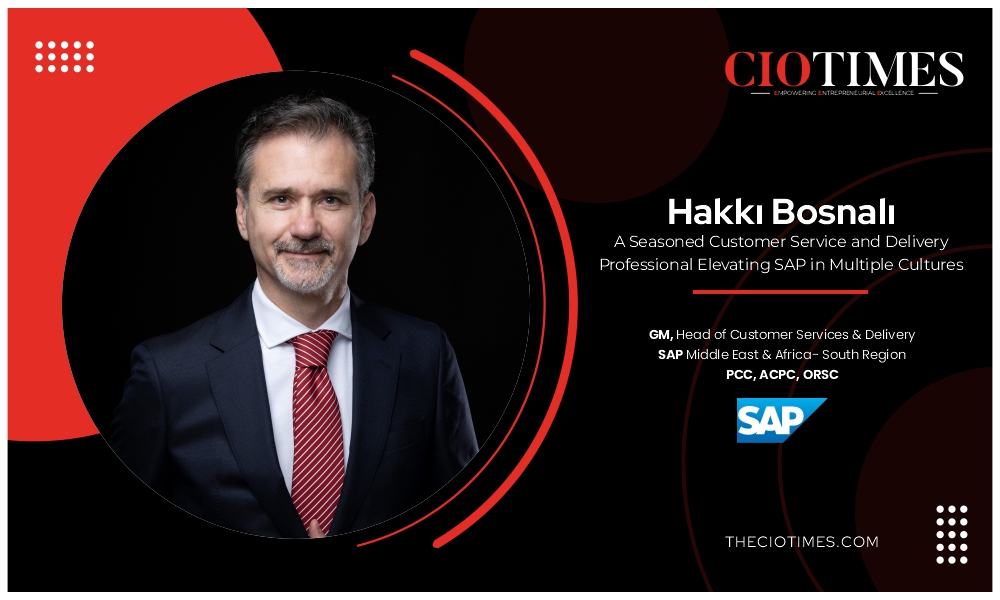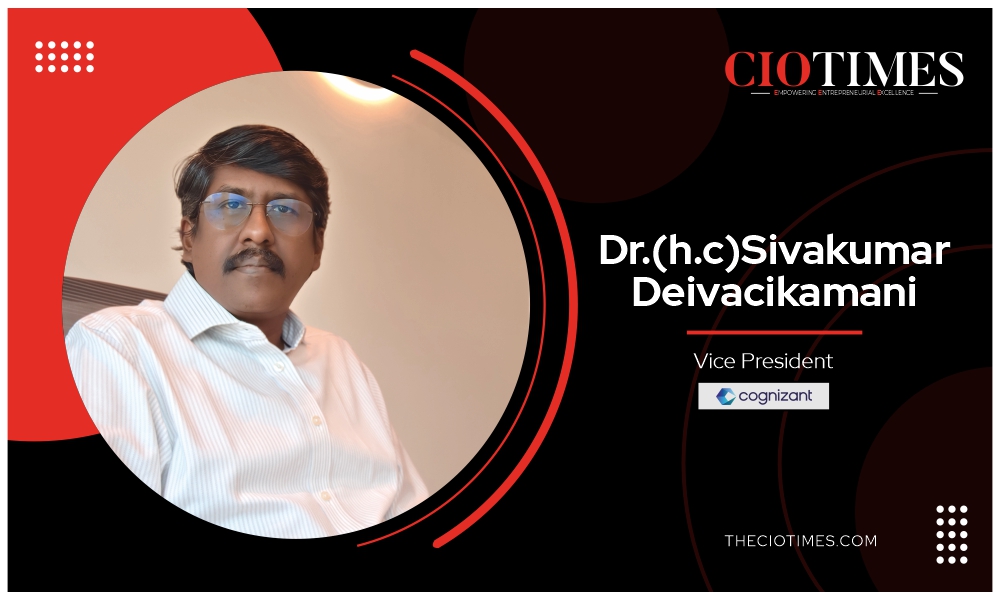Kashifu Inuwa Abdullahi, a distinguished Nigerian technocrat, currently serves as the Director-General of the National Information Technology Development Agency (NITDA). With a career spanning over two decades in both the public and private sectors, Abdullahi has been instrumental in driving Nigeria’s digital transformation.
His leadership at NITDA has seen the implementation of strategic initiatives aimed at fostering innovation, digital inclusion, and job creation. A Cisco Certified Internetwork Expert (CCIE) and an alumnus of prestigious institutions like MIT and Harvard, Abdullahi’s expertise and vision continue to shape Nigeria’s IT landscape, making him a key figure in the nation’s journey towards a robust digital economy.
The Professional Journey
Kashifu’s professional journey started from childhood because he believes his community and his family’s core values are what shaped and created his own career profession. He was born and raised in a community full of artisans; a community where every person stands out and gets noticed. “If you are looking for the best carpenter, best bricklayer, or best artisan in my society, you need to come to my community. My family core values are essential. My dad was always insistent that we need to be different and create value in whatever we do. This really helped shape my career,” he proudly shares.
Kashifu was inspired by an artisan who repairs electronics to study computer science. After his degree, he was also inspired by colleagues during his NYSC to challenge himself, to challenge the status quo, and do something different that can create value. After testing his skills in computer science, Kashifu found himself moving files from one office to another on a 9 to 5 basis. He challenged himself, asking why he should be a computer scientist just moving files. He requested his supervisor to give him an opportunity to develop a website for the organization he served with. He told Kashifu, “This is a government company. We don’t have money.” He replied that he could use his monthly allowance to fund it. So, Kashifu used his NYSC monthly allowance to pay for the domain name and hosting.
This opportunity allowed him to create value and get noticed. After developing the website, Kashifu included his details, and within five months, he was contacted by a company to develop a website for them, which they paid him 1.5 million Naira in 2003. Starting his career as a network engineer, Kashifu always had the urge to make a difference and avoid routine tasks. He supported customers to solve problems, eventually becoming the lead of the IP backbone, which is the highest networking site in the world.
He realized that if he continued focusing solely on networking, he would not grow, so Kashifu branched out to solution design. He was supporting a customer who paid a lot of money for an ERP system but wasn’t getting value for their investment. Kashifu realized that what they needed wasn’t an ERP; they could use Microsoft Excel to solve their issues. This led him to understand that technology is just a means to an end. The end goal is how to support customers in using technology to deliver value propositions.
Kashifu aspired to become a Chief Information Officer, and he got an opportunity to work with the Central Bank of Nigeria as a technology architect. His dream was to be the CIO of the Central Bank, but he also had the chance to work with the then DG of Media as a technical assistant. Eventually, he became the Chief Information Technology Officer of Nigeria, which is equivalent to the CIO of Nigeria.
“From aspiring to be a CIO of a company, I found myself becoming the CIO of the country. That’s my career in brief,” he says.
Challenges in the role of Director-General
For Kashifu, the most challenging task was managing people. Transitioning from managing devices to managing people was difficult. Starting as a network engineer, software developer, and technology architect, he suddenly found himself in a management role. This was the most significant challenge. Additionally, coming from a private sector mindset to a government organization like NITDA posed another challenge. The mindset of public servants differs greatly from that of the private sector.
The biggest challenge for him was setting the mindset of public servants to become a customer-centric organization. The organization needed staff to view their roles as a calling rather than just a routine 9 to 5 job. Kashifu initiated a change to make the agency a smart organization, focusing on resetting mindsets and developing skill sets. He established leadership principles, emphasizing clarity in everything the team did.
He recognized that people often resist change because they don’t understand the reasons behind it. Therefore, he created clarity for every task, selected a vision for the agency, defined the core values, and conducted culture orientation. This helped unleash energy in the people, changing the mindset from “This is a government job; I will get my salary regardless” to a more engaged approach.
Building trust was crucial. Trust changes everything; when trust exists, people go the extra mile. Kashifu and his core team ensured clear vision objectives from the corporate level down to individual KPIs, holding people accountable with a reward and consequence system. This approach has helped NITDA achieve a lot as an agency.
“Beyond that, we also focused on what lies ahead. If we only concentrate on today’s success, we risk losing out in the future. We have a dedicated team focusing on upcoming trends and how we can influence the ecosystem. These leadership principles really helped in changing mindsets, creating capacity, and fostering a psychologically safe environment where people can contribute and learn,” says Kashifu.
Committed to Growth
National Information Technology Development Agency (NITDA) aims to train a million Nigerians in 12 skills that are in high demand globally, locally, and internationally. NITDA’s goal is to position Nigeria as a talent net exporter to bridge the global talent gap. The second pillar is to build a technology-robust ecosystem. It views digital literacy and talent development as quick wins, but also needs to invest in deep research in six emerging technologies: AI, IoT, UAV, blockchain, robotics, and additive manufacturing.
The third pillar focuses on strengthening policy implementation and the legal framework to create an enabling environment for Nigerians and businesses to thrive. The fourth pillar promotes inclusive access to digital infrastructure and services, with interventions in unserved and underserved communities. The fifth is to strengthen cybersecurity and enhance digital trust so that citizens can confidently use technology.
The sixth pillar nurtures an innovative and entrepreneurial ecosystem. As NITDA trains citizens and provides access to technology, it also encourages, mentors, incubates, and accelerates startups, providing funding for them to grow their businesses. The seventh pillar is forging strategic partnerships and collaboration, recognizing that success requires working together as an ecosystem.
Lastly, internal transformation is essential.
“As we regulate and develop this emerging market, we must keep pace with rapid changes. We invest in training our people, changing mindsets, cultural reorientation, and using technology to automate processes for a more efficient organization. Strong institutions are critical for driving Nigeria toward achieving its vision for digital transformation,” explains Kashifu.
Initiatives Making a Difference
National Information Technology Development Agency (NITDA) has many initiatives, such as the Digital Learning Centers aimed at remote, unserved, and underserved communities. These centres provide access to technology, and a recent Google study shows that for every $1 invested, you can create $8 in economic value. NITDA has implemented more than 1,500 centres across the country.
Additionally, it is focusing on innovation hubs, aiming to establish one functional hub in every state. It’s not only about skills but also using those skills to solve local problems. It has partnered with donor agencies like JICA to implement the iHatch initiative, which started as a pilot in Abuja last year and has now expanded to six geopolitical zones and 36 states. Each state has a trained hub manager to help incubate ideas and support startups.
Significant Achievements
Kashifu considers digital literacy and talent development as the key achievements for NITDA. Talent is the people component of technology; one cannot develop technology without skilled individuals. NITDA has implemented digital literacy initiatives and improved access to digital infrastructure and content, impacting over 3 million Nigerians through its Digital Learning Centers in the past four years. Recently, it received an award from Coursera as the most impactful organization for using their content to help Nigerians learn technology.
Promoting Digital Inclusion and Innovation
National Information Technology Development Agency (NITDA) is implementing the Nigerian Startup Act, which encourages innovation. Prior to this, it had initiatives for learning centres and innovation hubs that helped turn ideas into products and services. These efforts have significantly boosted innovation and strengthened the ecosystem. Today, Nigeria boasts the most vibrant tech ecosystem in Africa, with six of the seven unicorns on the continent originating from Nigeria. Providing talent, infrastructure, enabling environments, policies like the Nigerian Startup Act, and access to seed funding have all contributed to this success.
Many startups have benefited, such as those from the iHatch initiative. For instance, Xolani Health generated $120,000 and went through our acceleration program, turning ideas into products. NITDA provided seed funding, and since then, they have raised over $60,000. It has also showcased many startups on international platforms like GITEX in Dubai and LEAP in Saudi Arabia, where two of its startups won $150,000 each during these events.
“We encourage co-creation and co-design in everything we do, fostering a participatory framework that builds a social contract with the ecosystem. In the past, the government created policies in isolation, but now we engage critical stakeholders to ensure every policy or regulation serves the ecosystem. This approach has been vital for our success,” concludes Kashifu.
Quote: “NITDA’s role is to develop, regulate and advise on Information technology in the country through regulatory standards, guidelines and policies.”
Quote: “We drive digital transformation to empower Nigerians through digital innovation, accessibility and enabling regulations.”
Visit Digital Magazine




